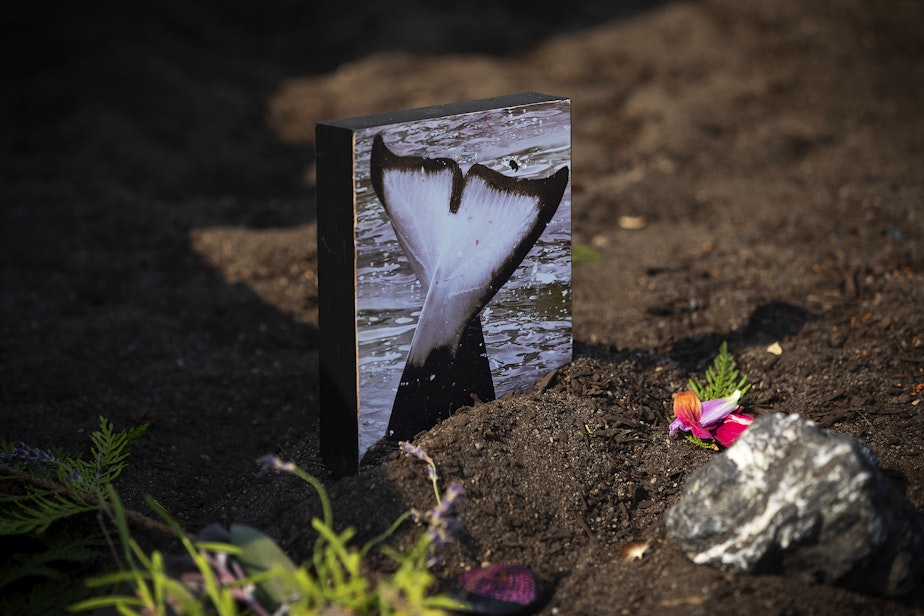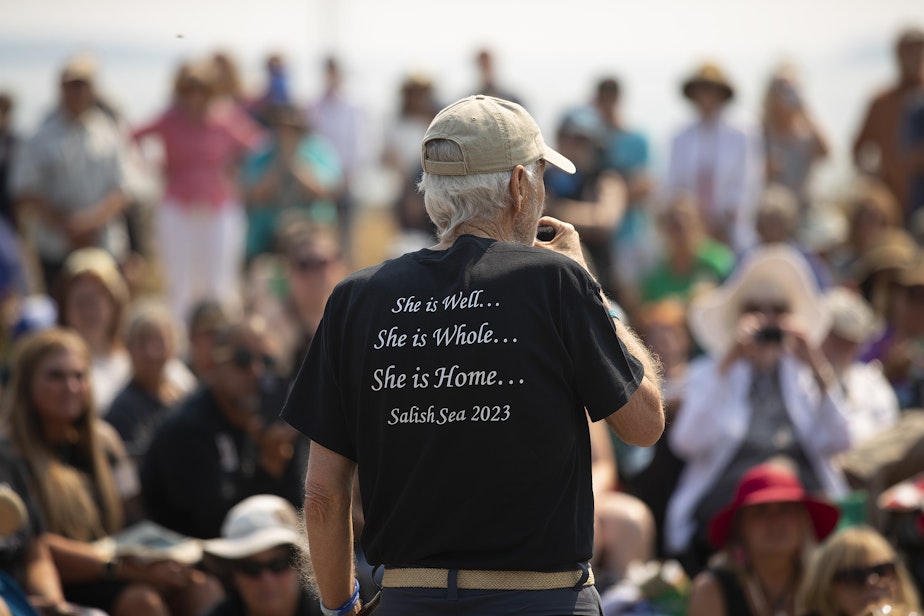Tokitae’s final song: A celebration of life for the last captive southern resident orca
H
undreds of mourners gathered at San Juan Island's Jackson Beach Park on Sunday to celebrate the life of Tokitae, a southern resident orca who died in captivity before her planned return to the Salish Sea.
Tears flowed as an audio recording of what are believed to be Tokitae's last calls was played for the crowd. Orcas communicate with their relatives using a unique dialect, and Tokitae was known to “speak” her language each day until her unexpected death on Aug. 18, according to Howard Garrett, cofounder of the Orca Network.
The orca’s family was spotted in her home waters on the day of her death. A recording of their calls was also played at Sunday's memorial.
The Lummi Nation, which led efforts to bring Tokitae back to the Salish Sea when she was alive, called for the orca's body to be returned to the region following news that it had been sent to the University of Georgia for a necropsy. On Sunday, Lummi Nation chairman Tony Hillaire signaled that those efforts had been successful.
“Sk’aliChe’elh-tenaut is coming home,” Hillaire said to the crowd, referring to the whale by her Lummi name. “Under the direction of our elders and cultural leaders, that date will be set at another time. But wanted to let you all know that there will be a homecoming; there will be some time for us to come together again to pay our respects.”

"She will be swimming with her family again," added Jay Julius, former chairman of the Lummi Nation. "That gives us all hope and that’s why we’re all here today, because she is coming home and her story will not be forgotten."
Until her death, Tokitae, also commonly known as Lolita, was the last remaining southern resident orca living in captivity. Captured in 1970, Tokitae was 57 years old when she died at the Miami Seaquarium after spending decades in the same tank. Her death is believed to be the result of renal disease, according to the seaquarium.
Lummi tribal members, elders, and youth at the memorial Sunday shared stories, sang songs, and danced in front of a story pole honoring Tokitae, carved by Jewell James and the House of Tears carvers. Flowers, pictures, and handwritten notes were laid by the story pole.
"It's more than a story of one whale," Julius said.
For Julius, Tokitae’s story is a hard lesson about the importance of protecting our environment and the creatures we share space with.

"When we decolonize our imagination for a moment and really allow ourselves to imagine what once was…deeply imagine the truth and reality of what we are doing to everything that is, then, I believe, the story is so important. Tokitae, Lolita, our story — everything that is, being managed to extinction," he said.
Hillaire asked for those in attendance to set aside their anger and frustration about Tokitae’s fate, “because she deserves much, much more than that,” he said. "She represents much, much more than the bad things that happened to her."
He also pointed to a connection between Tokitae’s capture and the oppression of Indigenous peoples.
"Our mothers and our grandmothers never wanted our children to be taken away from us," he said. "Our ancestors never wanted the atrocities to happen to us — for our land to be taken, for our children to be taken, for these ongoing threats to our sovereignty; to take away our language, to take away our culture."
But despite that heartache, Hillaire said, the tribe doesn't want sympathy.
"We want your empathy. We want you to understand who we are and where we come from," he said.




